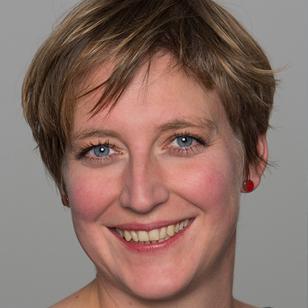Bridging the Gap: Achieving Gender Parity in UN Leadership
When talking about the International Women’s Day with my 8-year-old twins, both found it difficult to understand why there is not more progress on gender equality – to them, it is so obvious that it is about fairness and equal opportunities on the one hand, but also about immense benefits for everyone on the other hand. Securing women's and girls' rights across all areas of life is a moral obligation, but it is also essential for creating prosperous, fair economies and protecting a sustainable planet for future generations.
The United Nations (UN) has played a crucial role in negotiating global normative agreements that have helped bring about groundbreaking changes in countries worldwide. It bears a special responsibility for implementing these norms and standards internally, also to be able to effect change on gender equality in the world. The UN's internal commitment to gender parity at all levels has existed for over twenty years. Although as of date, there has never been a female Secretary-General leading the organization, there has been progress on gender parity on other senior posts.
Progress and challenges
Data from 2022, the most recent consolidated source, offers a mixed picture. Forty eight out of seventy-three UN entities are on track for high-level gender goals. Despite progress, women remain underrepresented in senior decision-making roles. For instance, they hold only 37.7 per cent of the highest director level positions (D2). A system-wide survey identified key barriers to gender parity at mid to senior professional levels (P4 and above):
- inadequate career development
- organizational culture challenges
- limited senior roles
- inconsistent work-life support
- limited outreach to qualified women.
The path forward
The key barriers taken from the survey resonate very much with what we hear in our own courses on Leadership, Women and the UN Programme. Such courses empower women in various ways to enable them to take their place at the decision-making tables in all agencies, funds and programmes – and to allow the UN in turn to not miss out on the leadership potential of its female staff members. Women bring unique perspectives, experiences, and expertise to the table.
Diverse and inclusive leadership teams have been proven to be more innovative, resilient, and effective in navigating complex issues. In times of polic-risis, the UN needs such teams more than ever before. This is relevant with regard to our internal transformations, making the organization more future- proof in line with the vision of UN 2.0. But in the end, it is about being more impactful and providing better support to member states and societies, on advancing the sustainable development agenda and addressing global crises.
My young son felt excluded from the celebrations of the international women’s day (which apparently involves candy for his sister and all girls at school). He was reconciled when we talked about the fact that he too, can and must be a feminist, and that we all share a common agenda (and candy).
Meaningful progress towards gender equality in the UN requires that in addition to focusing on women's empowerment, we take a systemic view of the challenge at hand. In that, to deliver on parity we must also examine changes in staff rules and regulations, policies, where needed, and work to bring about a shift in mindsets and organizational culture. For us at UNSSC, this means that gender equality is a topic woven throughout our learning offerings and services, to ensure that all staff are equipped and enabled to play a part in promoting inclusion and gender equality in the UN.
